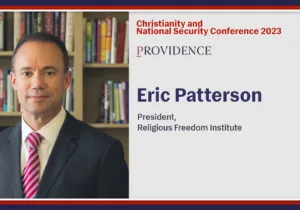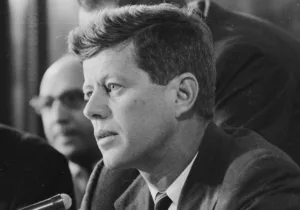No historical movie is historically accurate, as movies are always mainly about entertainment not instruction. Some biopics depart from truthful detail but are ennobling and capture the essence of their subjects, like George Scott’s portrayal of Patton or Raymond Massey’s Lincoln. Others are malevolent and farcical, like almost anything from Oliver Stone.
The new Churchill movie with Brian Cox is silly and dull. It implausibly imagines that Churchill is on the verge of a nervous breakdown before D-Day, trying to halt the invasion even hours before it begins. For two years Churchill did strive to delay a direct invasion of France in preference for more indirect entrances to Europe’s supposedly softer under belly. But by June 1944 he was committed and robustly enthusiastic if also justifiably apprehensive.
(Andrew Roberts offers litany of this film’s inaccuracies here.)
Compressing the opposition of previous years into the few days before D-Day might be artistically justifiable if artistically portrayed. But this movie somehow turns one of Churchill’s and history’s most dramatic episodes into a great bore.
Partly the problem is the film’s low budget. Although Britain of course at this time was sinking under the weight of great armies, literally only a few people appear in the frame of each scene. Churchill’s visit to departing British troops shows only only a dozen or so men in the woods, as though they are Robin Hood’s band. London is a ghost town.
Churchill at this most hectic time moves about hallways and the countryside virtually alone, accompanied by a nervous Jan Smuts, portrayed as a sort of aide and lackey but actually premier of South Africa and a field marshal who served in Britain’s war cabinet and was even considered a possible successor to Churchill. Smuts, who was older than Churchill, was an Afrikaner who fought the British and Churchill in the Boar War but then became a committed subject of the British Empire. He was more racially liberal than most Afrikaaners and his postwar electoral defeat by the National Party tragically led to Apartheid. An intellectual and religious mystic, Smuts was fascinating and formidable. This film could have been saved just be focusing on his now mostly forgotten relations with Churchill, with whom he was genuinely close.
Instead the film has Smuts interceding between Churchill and his impatient, long suffering wife, who’s implausibly shown slapping and preparing to leave her husband on the eve of D-Day. Churchill is sulking, despairing, petulant, drunk and literally praying for the invasion’s cancellation. He’s obsessed with the carnage of WWI and understandably determined to avoid repeating it.
If there is any redeeming feature to this film it is its effort to capture Churchill’s profound humanity. After first meeting him during WWII Tito was asked what most impressed him about the prime minister, to which he quickly responded: “His humanity!” Churchill was passionate, unapologetically emotional, empathetic and vivid in all his exertions, which the film tries to capture. There are also a few rare nuggets of actual historical accuracy uncommonly shown. Churchill demands his “klopper,” which is what he called a hole puncher used for tying his speeches together. He wears zipped rather than laced shoes, supposedly for saving time and not bending over, as he has a stick for pulling up the zipper.
Churchill’s zipping around Britain in a car without escort is maybe the film’s budget saving measure but also has truth behind it. His security detail was shockingly small for wartime. Hitler by contrast was protected by legions, and FDR across an ocean from war moved about in an armored train car. Churchill’s minimal protection evinced the confident stability and cohesion of British society.
As another cost saving, the film evidently declined rights to Churchill’s apparently copywrited words, so there are no actual quotes from him, leaving him inarticulate with moviespeak, including in his speech about the D-Day landings, which he delivered to Parliament, not in a room by himself with microphone, as the movie prefers.
Churchill’s real life speech reported success but warned of great adversity ahead and concluded: “It is, therefore, a most serious time that we enter upon. Thank God, we enter upon it with our great Allies all in good heart and all in good friendship.” These simple hopeful words could have finished a more successful film.







 Sponsor a student for Christianity & National Security 2024
Sponsor a student for Christianity & National Security 2024